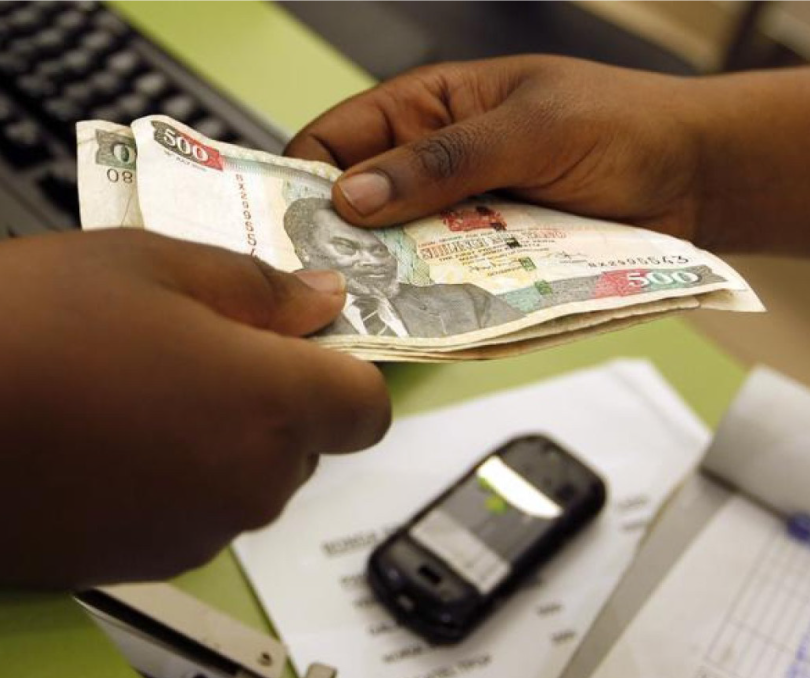In a sign of the challenging economic times faced by many Kenyan savers, over 5.6 million bank accounts have been closed in the past two years, with numerous others reducing their account balances to a minimum threshold.
This trend has emerged alongside the rise of alternative savings options, including mobile wallets and ‘chamas,’ and is causing disruptions in the country’s banking sector. According to the latest data from the Central Bank of Kenya (CBK), the number of deposit accounts in Kenya’s banks fell by 5.66 million accounts, or 7.78 percent, from 72.66 million in 2020 to 67 million in 2022. This decline marks a significant departure from the decade-long growth trend observed since 2010.
The Financial Sector Stability Report for 2023, published by the CBK, also highlights that bank customers are increasingly maintaining low balances in their accounts. This concerning development could negatively impact the liquidity buffers and funding bases of Kenyan banks.
Habil Olaka, the Chief Executive of the Kenya Bankers Association (KBA), downplayed the significance of this new trend and its potential adverse effects on the banking industry. He stated that it was not a trend they had observed directly, and he refrained from offering an official position on the matter.
This latest report follows a recent study by the CBK, which unveiled changing preferences among Micro and Small Enterprises (MSEs) in Kenya. These businesses are increasingly choosing to store their funds in mobile wallets and chamas rather than traditional banks and savings and credit cooperative societies (saccos). This shift reflects a new savings trend that is reshaping the country’s financial sector.
According to the MSEs Tracker Survey, 51.5 percent of businesses are saving in mobile money wallets like M-Pesa, Airtel Money, and T-Kash, while 42.7 percent prefer to save with chamas or groups. In contrast, the proportion of MSEs saving in banks (including microfinance), mobile banking services (such as M-Shwari and KCB M-Pesa), and saccos stands at 30.8 percent, 25.4 percent, and 11.3 percent, respectively. Additionally, 23.9 percent of MSEs are choosing to save in unconventional locations like cash boxes.
The survey also reveals gender and location disparities in these savings patterns. Female-owned businesses show a preference for chamas and groups, with 57.3 percent choosing this option, while 55.1 percent of male-owned businesses opt for mobile money wallets. Furthermore, owner-operated businesses, those with one to nine employees, and businesses in both rural and urban areas exhibit varying preferences for mobile money wallets, with percentages ranging from 50.2 to 52.8 percent.
The survey, conducted in June 2023, included 1,961 businesses, with 72.6 percent still operational and 27.4 percent having closed. Among operational businesses, 57.6 percent were female-owned. The survey shows that MSEs are primarily saving for daily household needs (63.4 percent), educational expenses (62.3 percent), and business expansion (55.6 percent), with only 4.7 percent saving for unexpected occurrences or emergencies.
In 2022, Kenyan banks held deposits totaling Ksh4.8 trillion ($32 billion), with the Kenya Deposit Insurance Corporation (KDIC) providing insurance coverage of Ksh750 billion ($5 billion), equivalent to 15 percent of the total deposits. It’s worth noting that this 15 percent coverage falls below the recommended minimum of 20 percent suggested by the International Association of Deposit Insurance (IADI).
It’s estimated that a significant proportion of deposit accounts in the banking sector—approximately 90 percent—have balances of less than Ksh100,000 ($666.66). This trend underscores the need for banks to adapt to changing customer preferences and economic challenges, as Kenyan savers increasingly explore alternative avenues for their financial needs.















